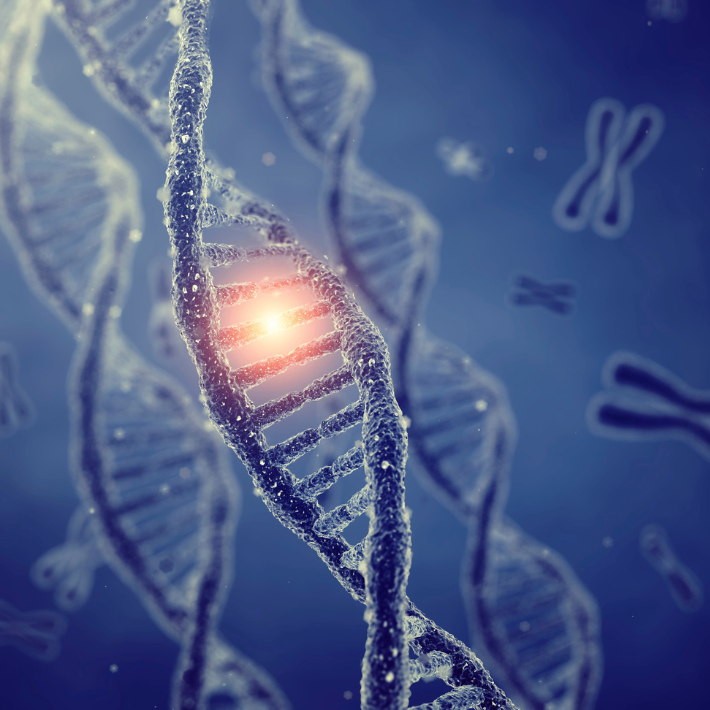New genetic mutation found in several familial cancers
&width=710&height=710)
The results were published in the leading journal Nature Communications.
The TP53 gene is crucial for the production of p53 proteins, which help regulate cell growth and prevent tumor formation. It was previously known that changes (mutations) in this gene can lead to Li-Fraumeni syndrome, a serious inherited disorder associated with an increased risk of various types of cancer, often at a young age.
“But there are also some families where there is a striking pattern of hereditary cancer, with no clear genetic cause that could be identified. In those families there were already indications that something had to be going on genetically, but which mutation was the culprit, we did not yet know,” says LUMC researcher Stephanie Schubert.
'A heavy burden on families in which the mutated variant occurs'
Together with her colleagues Noel de Miranda and Tom van Wezel, she found a new mutation in a specific, little-studied region of the TP53 gene in four Dutch families known to have an increased risk of colon, breast or thyroid cancer. This region is responsible for the production of so-called p53β proteins (pronounced: p53 beta), a subtype of the p53 protein.
In these four families, the researchers discovered that something striking about the mutation was that the p53β proteins were longer. This change disrupts the function of p53 proteins and may explain the increased risk of cancer, laboratory studies in collaboration with the University of Dundee in Scotland confirmed.
Schubert: “That would mean that people who have this mutation are 1-0 down. In doing so, they are more likely to have other mutations. As a result, they sometimes develop tumors at a younger age. This places a heavy burden on families in which the mutated variant occurs.”
Preventive screening can be considered
 This discovery underlines the importance of a thorough analysis of all mutations in the TP53 gene. It offers new opportunities for improved diagnosis and treatment of patients with a hereditary increased risk of cancer. Preventively, the researchers are thinking of screening, for example. Schubert (photo): “As soon as you know that someone has the mutation, you can invite someone to come to the hospital earlier for certain tests, so that intervention can be taken before the tumor is too large or metastases occur.”
This discovery underlines the importance of a thorough analysis of all mutations in the TP53 gene. It offers new opportunities for improved diagnosis and treatment of patients with a hereditary increased risk of cancer. Preventively, the researchers are thinking of screening, for example. Schubert (photo): “As soon as you know that someone has the mutation, you can invite someone to come to the hospital earlier for certain tests, so that intervention can be taken before the tumor is too large or metastases occur.”
More research is needed to determine how likely a carrier of the mutation in the TP53 gene is to develop cancer. “We cannot yet provide that information based on these four families,” she said.
The study grew out of Schubert's doctoral research, on which she worked for more than four years. She calls the publication in Nature Communications a crowning achievement of her work. The research came about thanks to close cooperation between the Departments of Pathology and Clinical Genetics at LUMC, the Stichting Opsporing Erfelijke Tumoren (STOET) and the University of Dundee, with contributions from several Dutch academic centers.
&width=710&height=710)
&width=710&height=710)
&width=710&height=710)
&width=710&height=710)